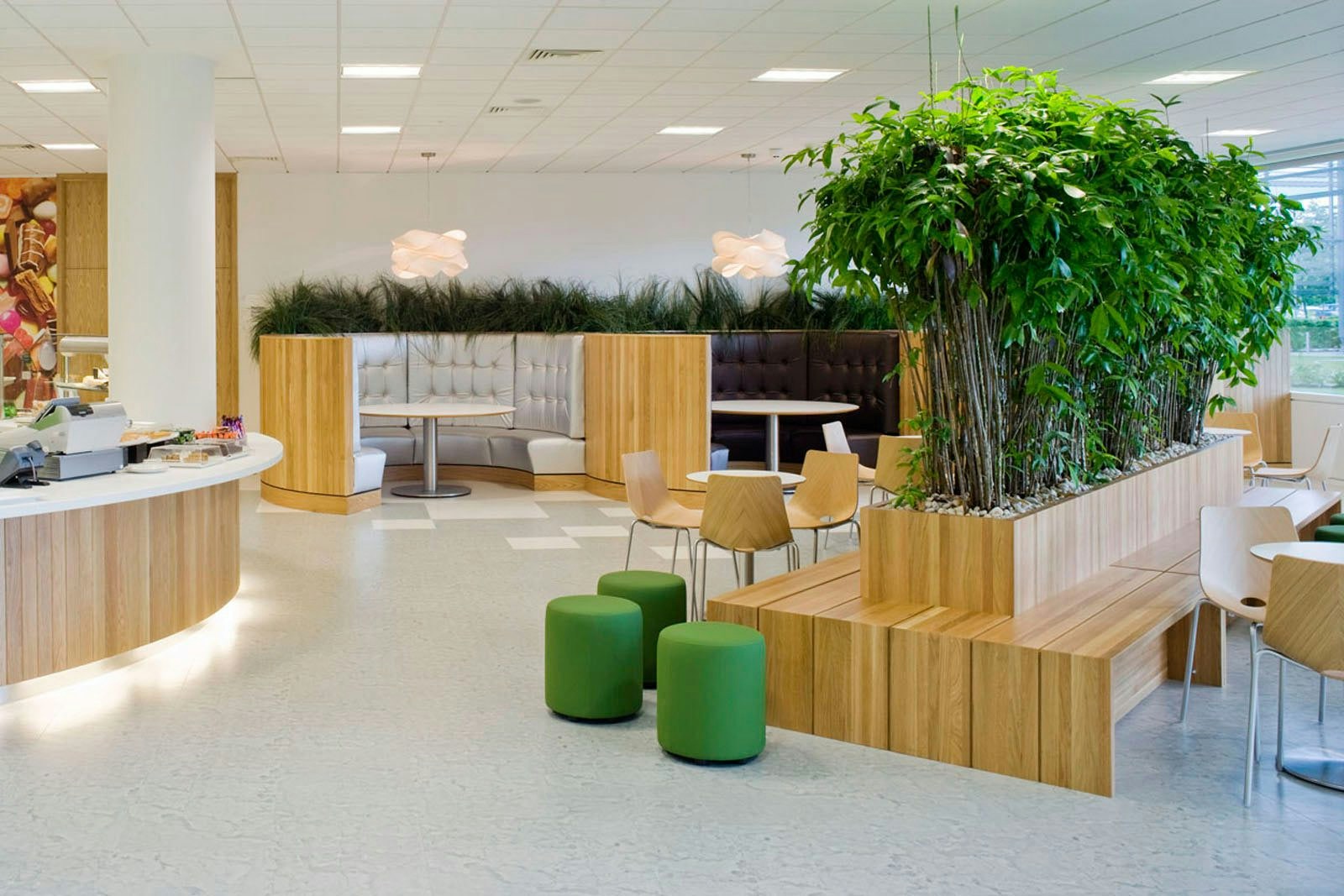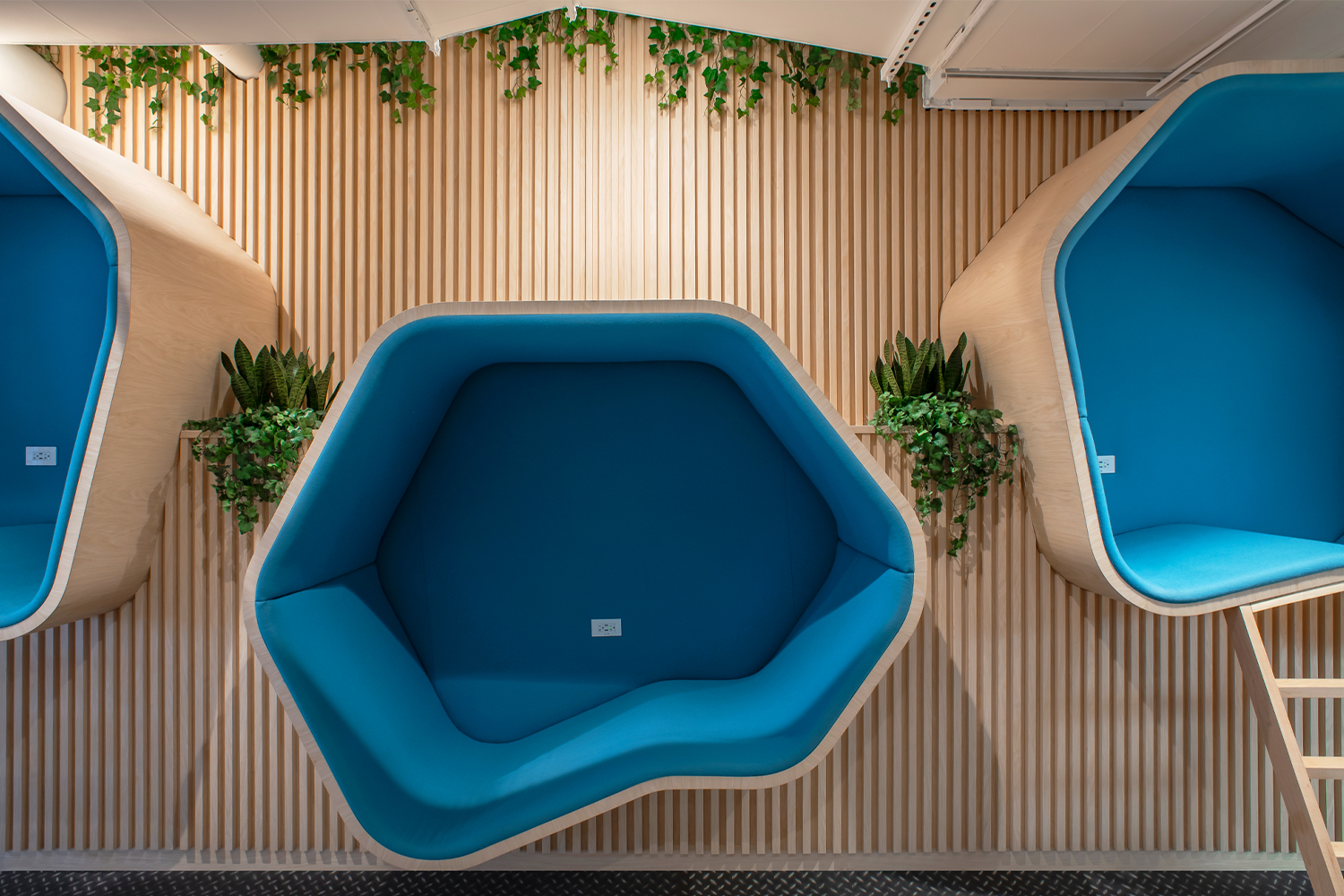It’s imperative on both furniture and build projects that waste is minimised. Our first action is an attempt to re-use whatever we can on each new design, layout, refurbishment or relocation project. Any surplus furniture is either re-homed or sold as part of that process by ourselves or our clients. Furniture or build fabric is then broken down into parts that can be recycled. All our sites have material-separated waste bins to make that process easier for our waste provider.
Sustainability in the workspace
Buildings are a major contributor to global energy consumption and greenhouse gas emissions, accounting for 40% of energy use and 33% of emissions. To address the challenges of climate change, it is crucial to design and construct new buildings in a sustainable and energy-efficient manner. This involves using materials with a low environmental impact, incorporating renewable energy sources, and designing the building to maximise energy efficiency.
In addition to their positive impact on the environment, green buildings can also benefit employees, businesses, and investors. For employees, green buildings can provide a healthier and more comfortable work environment, which can lead to improved well-being and productivity. For businesses, sustainable buildings can lead to cost savings on energy and resources, as well as improve the company’s reputation and attract top talent. Investors can also benefit from green buildings, as they may be more attractive to tenants and have a higher resale value. Overall, incorporating sustainability into the design and construction of new buildings can have numerous benefits for all stakeholders.
Waste

We design with sustainability in mind
Reduce
Reducing both transport and waste is No. 1 on our schedule. Identifying components or products that can be recycled in any way possible reduces cost, waste and lead times. We always encourage clients to store furniture for re-use in the future whether it’s growth or expansion into additional space. Clients then have products that can be used instantly, in turn reducing shipping of new products from around the world and lowering their carbon footprint.

Coupled with reduction, reuse is fundamental to achieving a sustainable workplace. Encouragement and leadership through clever design, together with client buy-in is paramount in the re-use process. Our first course of action involves reaching out to charities, followed by engaging the broader community, particularly when it comes to repurposing furniture and salvaged materials.
Recycle
Inevitably, our design and build team, along with our furniture division, generates waste. This is an unavoidable result of needing to safeguard goods during transit and to prevent damage to newly installed products. Despite this, we strive to not only minimise waste but also to ensure that whatever is recyclable gets processed appropriately.
In fact, we segregate all waste, breaking it down to its core components such as non-recyclable materials, wood, cardboard, metal, glass, stone, plastic, etc. These materials are then dispatched to a local recycling business for processing, or sent to larger specialised recycling facilities across the country in order to re-manufacture them into new products. In this way, we ensure waste is converted back into new, usable products.
Featured Sustainable Office Design Case Study
DTRE achieves BREEAM status with K2 Space’s new office design
DTRE’s 11,000 sq. ft office space that met a stringent set of criteria for sustainability. The project took about 4.5 months to complete and the BREEAM accreditation was awarded a “very good” rating in August 2022. The project team had to fulfil a range of requirements in nine categories: management, health and wellbeing, energy, transport, water, materials, waste, pollution, and innovation. These included using energy-efficient light bulbs with motion sensors and controlling glare and light to create optimal working conditions for employees.
Recovery
In essence, waste that isn’t suitable for recycling is primarily channelled towards waste-to-energy facilities, where it is transformed into a source of energy.

Disposal
By employing this method for handling disposal needs, we strive to reach a goal of zero waste going to landfill. Nevertheless, we remain pragmatic, recognising the near impossibility of fully guaranteeing this due to the varying types of waste produced and the fact that not all materials can be recycled or burned.


